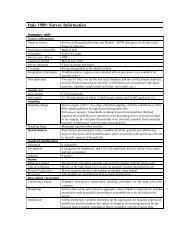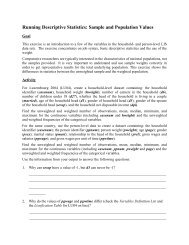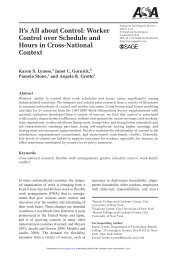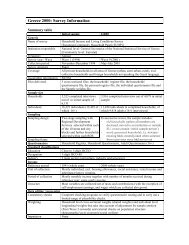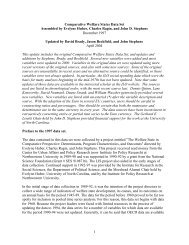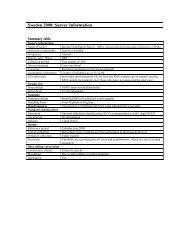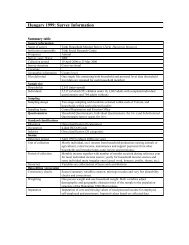Nicola Dickmann: - LIS
Nicola Dickmann: - LIS
Nicola Dickmann: - LIS
Create successful ePaper yourself
Turn your PDF publications into a flip-book with our unique Google optimized e-Paper software.
children and uses the options provided by the long parental leave. A parental wagewould foster these long absences from work even more and hence prevent anadaptation of the income situation of families to childless couples. It is thereforequestionable if this would be a good way to help families and fertility in the long run, aswell trained women might anticipate their individual losses through the long absence andchoose a life without children.A better conciliation of working life and family could instead ease the natural trade offsbetween time at work and time for the family. Better child care facilities, flexible workinghours and a more equal distribution of the work in the household between husband andwife could improve the economic situation of families and meet the desires of youngwomen to work and have a family at the same time. The decision to have childrenshould of course remain with the couple. Backed by labour market arguments the state,however, could set the right frames to give most young women incentives to work andhave children at the same time.REFERENCESAbramovici, Gérard, 2003, Social protection: Cash family benefits in Europe. In: Eurostat(Editor): Statistics in focus. Population and social conditions, Theme 3 – 19/2003.LuxembourgBecker, Gary S., 1960, An economic analyses of fertility, in: National Bureau ofEconomic Research (Editor): Demographic and economic change in developedcountries, Princeton, p. 209-231.Birg, Herwig, 2001, Die demographische Zeitenwende. Der Bevölkerungsrückgang inDeutschland und Europa. München.Blau, David M., 2002, The child care problem. An economic analysis. New York.Bradshaw, Jonathan / Finch, Naomi, 2003, Child benefit packages in 22 countries.Paper presented at the 4 th international research Conference on Social Security.Internet: http://www.issa.int/pdf/anvers03/topic2/2bradshaw.pdf<strong>Dickmann</strong>, <strong>Nicola</strong>, 2003, Demographischer Wandel – Geburtenraten im internationalenVergleich, in: iw-trends, Vierteljahreszeitschrift zur empirischen Wirtschaftsforschung,30. Jg., No. 1. p. 45-5613



